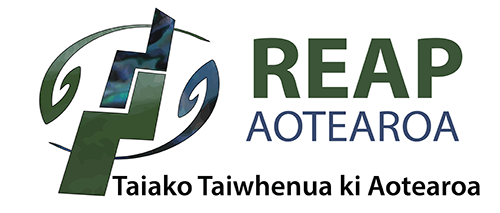by admin | Jul 15, 2018 | Eastbay REAP, Story
Eastbay REAP began running science holiday programmes in 2017 to showcase it’s science learning kits, as the Eastern Bay branch of House of Science. The kits offer a great hands-on opportunity for students to get interested in science through real-world applications. Forensic science, physics though rockets, robotics, and even nanotechnology are just some of the dozens of kits available.
The holiday programmes are a hit with students and whanau, who are invited to be part of the afternoons to see what the children have learned. Eastbay REAP also provides a roving facilitator to support teachers and schools who check out the kits as part of their curriculum delivery.
The goal is to increase science teaching time in the classroom (and out of it!), and grow confidence in our educators to play with science as something that is all around us!
by admin | Jul 15, 2018 | Central Otago REAP, Eastbay REAP, REAP Wairarapa, Story
Three REAPS (Wairarapa, Central Otago and East Bay) recently collaborated on a research project funded by Ako Aotearoa. Their report was published in February 2017 and the REAPS involved held a workshop at the ACE Conference this year.
The main aim of this project was “to discover how successful learning is defined by learners in the ACE sector and how this can inform the programme interventions and activities offered in this learning context”. Forty-three learners, thirteen ACE tutors and fifteen other stakeholders working in the ACE environment took part in focus groups.
The research defined learner success from a learner perspective and provided indicators of learner success. Learners, tutors and other stakeholders identified challenges or barriers that learners faced. Learner support mechanisms were identified and there
is a section on ACE tutor expectations, essential qualities, and professional development.
Overall the research found that “the ACE sector promotes and facilitates the engagement of adults in lifelong learning. It offers a range of community-based education activities and programmes that are flexible in nature and responsive to the learning needs of
communities and to individual learners,” and that “a significant strength of the REAPs was the effectiveness of providing learners with a wrap-around service, that is, working in collaboration with other social services in the community.”
As a result of the research two resources have been developed. The first is a learner-centric evaluation model establishing essential learner-centric practices, and key stakeholders providing and supporting these. The model is based on a description of learning success as described by the learner participants. The second resource is an evaluation review process as an integrated tool alongside other established ACE evaluation processes that can be used by ACE training providers to determine alignment between programme interventions and activities and ACE learners’ views
of successful learning. The process encompasses three evaluation and review templates, and is underpinned by the Learner-centric Evaluation Model.
Download the report HERE
by admin | Sep 1, 2017 | Eastbay REAP, Story
Eastbay have used a community led developmental approach to their development of a SKIP contract. This was a collaborative Eastbay REAP staff initiative from across a number of contract areas. With face to face connecting as a platform, conversations were held with 5 communities across the Bay. A multi-stage approach involved surveys, free sausage sizzles in those communities, with an ideas board receiving further ticks and new suggestions. Activities kept the under 5s engaged so the parents could actively participate.
In each location whanau champions were becoming evident, “Life Skills” was highlighted as the focus.
One of the keys for us was dedicated staff from across our contracts working collaboratively outside their own contract areas. Therefore we look forward to our community champions leading this SKIP contract in 2017
